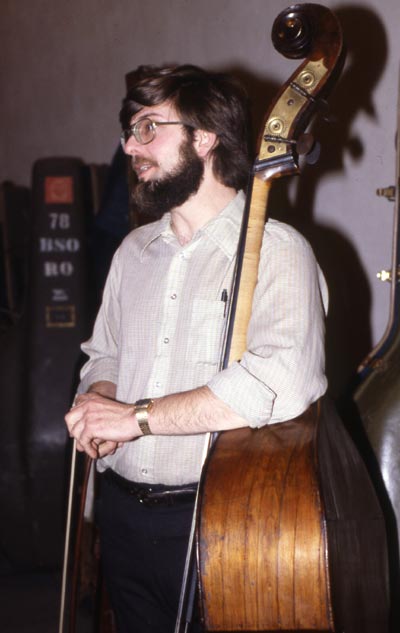 |
|
BSO assistant principal bass Lawrence Wolfe on tour with the orchestra in China in 1979. STORY LITCH / For China Daily
|
"Because I am tall and look American, people were curious about me. I remember the burning coals and the chimneys outside the houses. I wanted to go to the old neighborhoods this time to see if they are still there," he adds.
Three weeks before Wolfe came to China in 1979, his twin daughters were born. It was heartbreaking for him to leave.
He remembers one day that he walked on the street with an interpreter, and he stopped to show him pictures of his daughters.
"Soon, people on the street surrounded us, curious about what we were looking at," he says. "But it won't happen again now. China has attracted many foreign people, and there is no language barrier since many Chinese can speak English."
The 1979 trip to China planted many seeds: Wolfe exchanged tapes with professors at local conservatories in master classes and workshops. During this trip, he will have dinner with the parents of his two Chinese students, who are pursuing their bass studies in the United States.
"Things are so merged between China and the Western countries. For those young Chinese talents, nationality is not a problem. When Lang Lang sits behind the piano, I just hear music, rather than where he comes from," Wolfe says.
According to BSO managing director Mark Volpe, after that first historic trip, the orchestra had planned to return to China in 1999. But the NATO bombing of China's embassy in Belgrade led the orchestra to cancel the tour at the last minute. Despite that, the BSO's 13th music director, Seiji Ozawa, who was born in China, came to China to teach at Beijing's Central Conservatory of Music, where he found the level of performance to be very high and said he appreciated the many sentiments of regret expressed about the tour's cancellation.
We Recommend:
